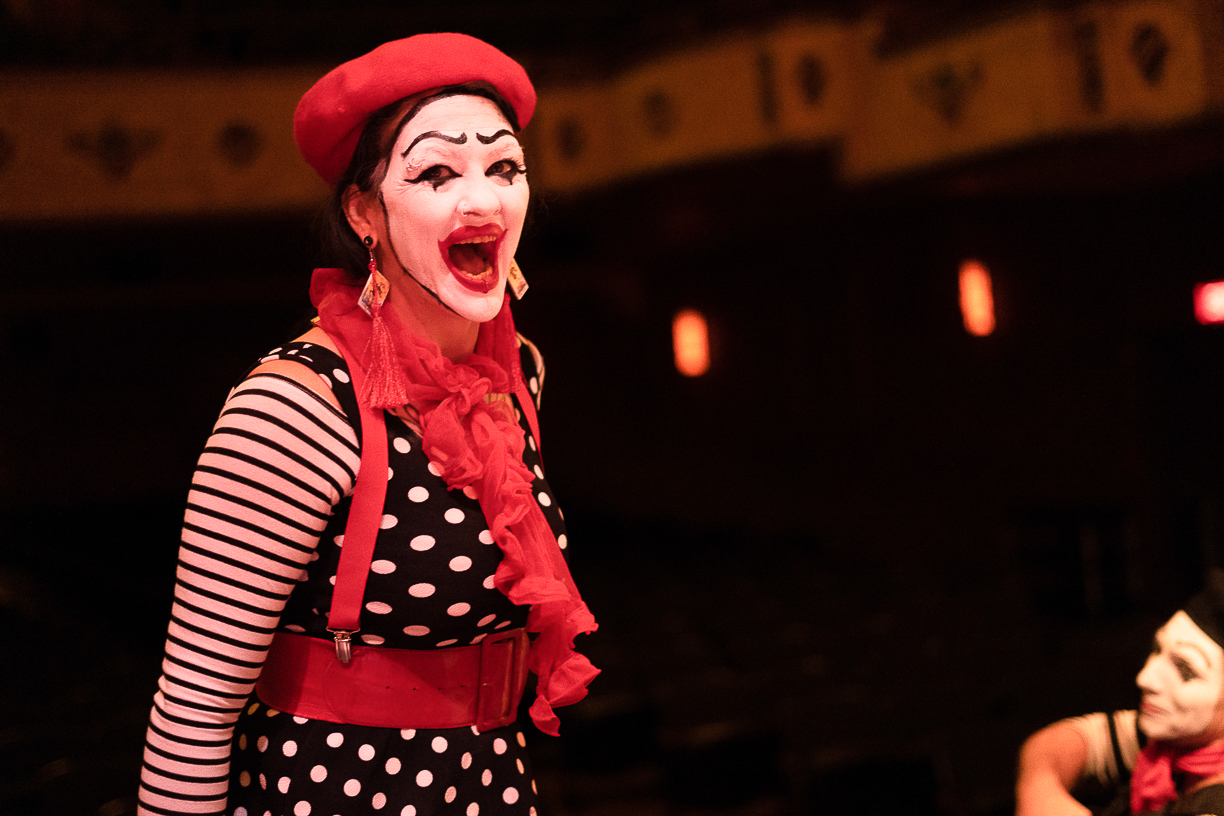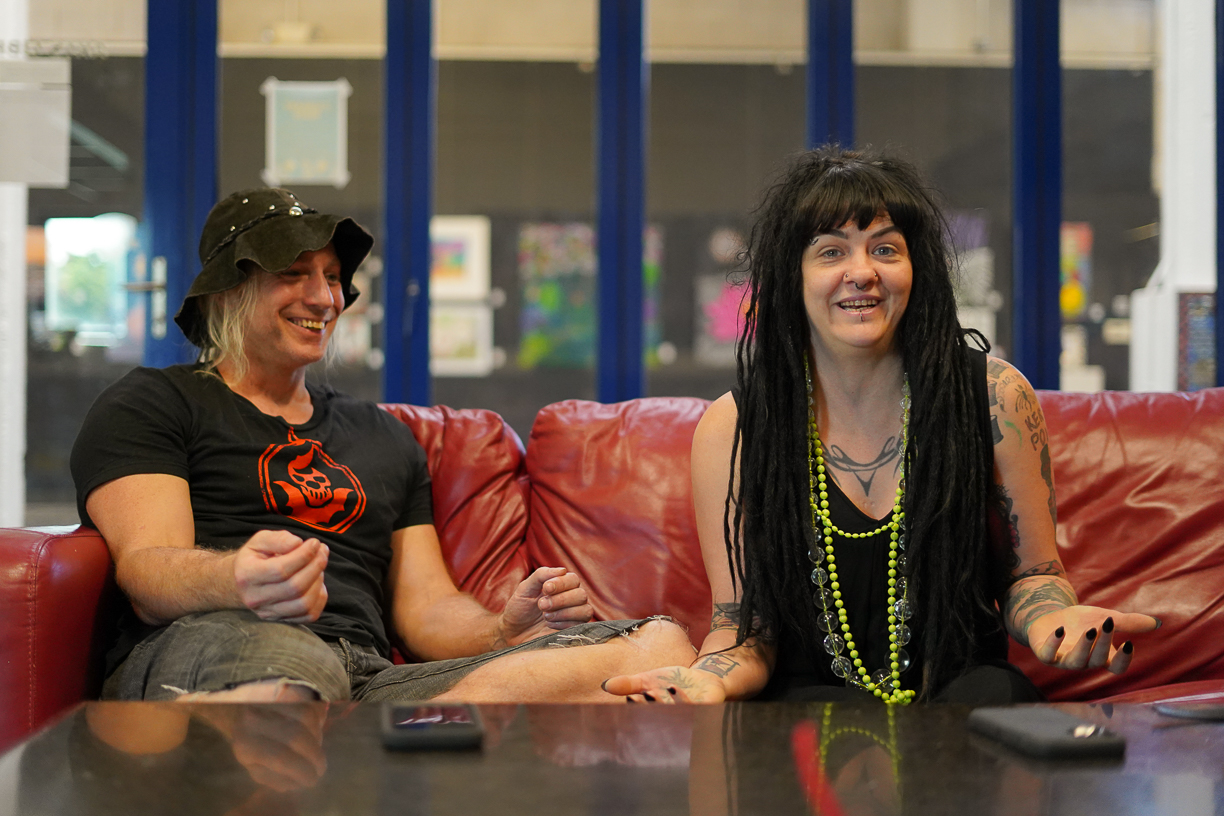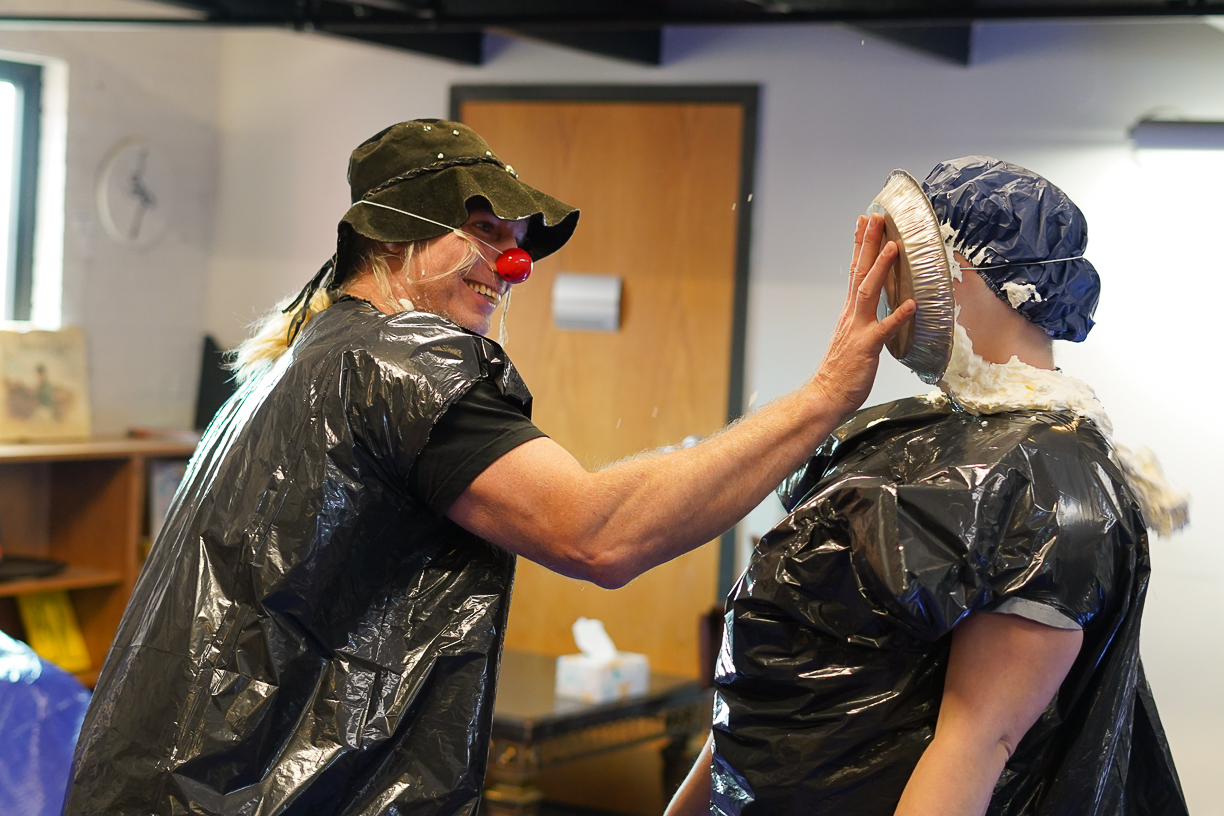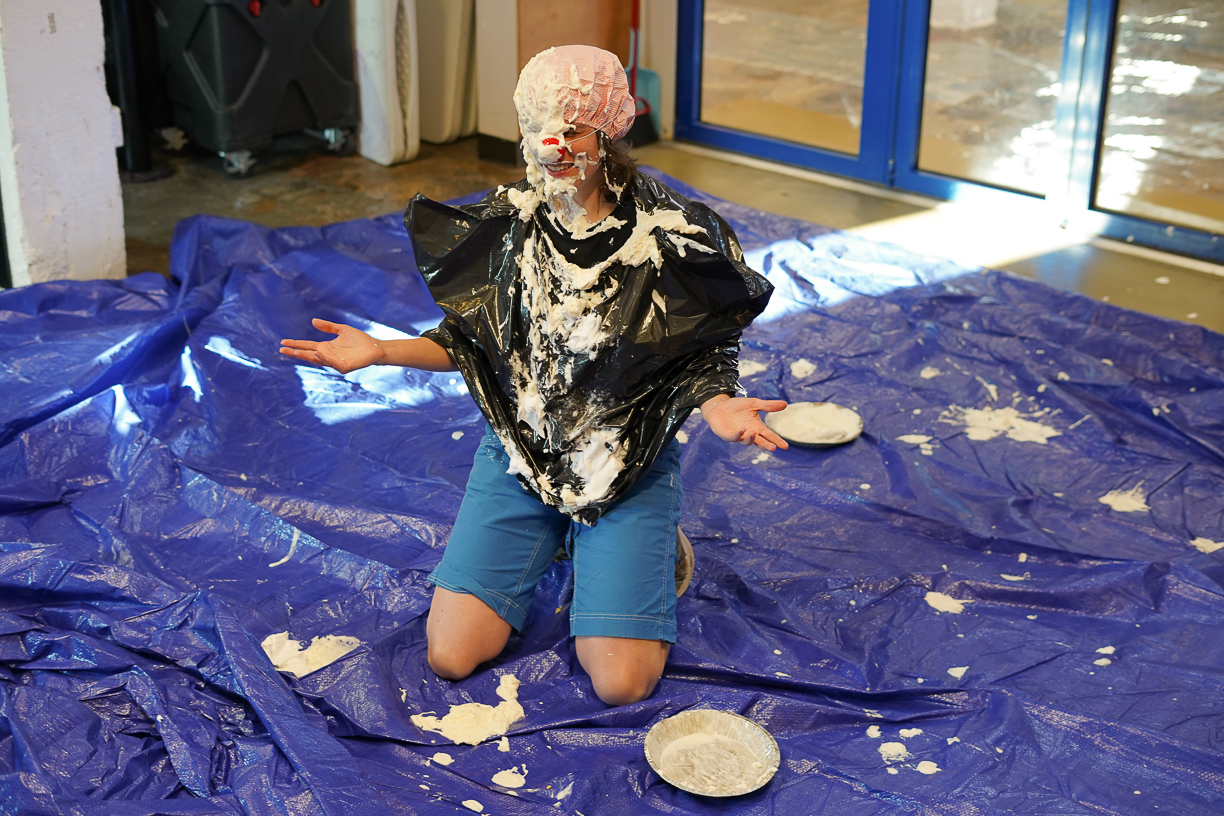This is about clowns. Don’t be afraid.
Darren Wynne and Kashena Star Northrip founded the Fools Gladly out of a love of clowning — and people.
“We are trying to create joy,” Northrip said. “It really hurts my heart that so many people are legitimately afraid of me as a person.”
The Fools Gladly carry trinkets like little stars or clown noses to give to scared children. Sometimes they hand out juggling scarves. They also give viewers plenty of space.
“We're always very, very cautious to approach people,” Northrip said. “I’ve literally had to tell people, ‘I am not a threat; I am a clown. Do not punch me.’”

Wynne takes a more whimsical approach to the relationship between clowns and their audiences.
“I’m afraid of clowns, too, and haven’t figured out what to do about it,” he said.
Wynne added it’s hard to imagine someone fearing Charlie Chaplin or Lucille Ball.
“You can find examples of clowns mirroring back disturbing or grotesque things about humanity, so I can see a niche for scary clowns,” he said. “But if the most interesting thing about a clown is the way they look, they're probably a s—- clown.”
How to be a clown
One day, Northrip — who was born near Lebanon but living in Florida at the time — visited a friend in Springfield. Wynne, a Webb City native, has lived in Springfield since he was a sixth-grader. Northrip saw Wynne on a porch and complimented his shirt, which featured The Cure.
Two weeks later, they moved in together. They just celebrated their 20th dating anniversary, though they had a commitment ceremony in Paris in 2015.
“Now we own a house,” Northrip said, “and a Great Dane named Jynx.”
Early in the relationship, they practiced juggling on lunch breaks.
Beginning in 2012, the two juggled at charity events, dressing nicely to blend with the crowd. One day in 2019, Northrip suggested they dress as clowns for the show.
“Everything changed,” Wynne said. “We weren't just juggling anymore. We were hiding in the curtains and trying to catch the other person putting their head out and looking back.”

He added an accordion and a unicycle. She added a tiny bike. They have a giant parachute. Now they can juggle seven items between them.
Wynne also works as a senior software engineer at O’Reilly Auto Parts.
“I'm kind of a self-starter,” Wynne said. “So, I read a lot of clown books, watched a lot of clown stuff, and thought, ‘We should just have clown classes and figure it out ourselves.’”
Clown Class meets once a week at the Creamery Arts Center, which also houses the Springfield Regional Arts Council.
“If you’re in clown class afraid of looking like a fool, you're in the wrong place,” Wynne said.
They train on stage presence and practice improv. Recently, Garland Owens taught the group how to make balloon animals over several sessions.
The class is limited to five participants at a time, and that’s intentional.
Using humor to heal
Clowning is as much about healing as it is about performing, the pros say. Wynne references “The Body Keeps the Score,” in which Dr. Bessel van der Kolk recommends using drama and improv to heal trauma.
“I refer to our little troupe as kind of the misfit toys,” Northrip said. “Because I think that every single one of us has been really hurt, but by playing, we’re living our dreams in these very small ways and it’s kind of epic.”
A performer named Solice (pronounced like “solace”) said clowning has given her permission to play like a kid.
“Becoming a clown really changed my life,” Solice said. “I’ve always been very serious, but I get to embrace my inner child that I was really never able to embrace before.”
Clowning helped Northrip in the midst of mental health issues brought on by folate conversion disorder, which makes it hard for a person to process B vitamins. Clowning has given Wynne a way to confront social anxiety.
“I feel like — in him wearing the mask of a clown, he has actually been able to be more himself on a daily basis,” Northrip said.
She doesn’t get stage fright, but he gets nervous before every show.
“Oh, my gosh, two hours before it's time you start to be quiet and weird,” Northrip said. “And it drives me nuts.”
Wynne explained the quiet weirdness.
“I have a ritual that I go to that I think helps with it, and that is right before the show I go through every piece of the act,” Wynne said. “I think ‘That's stupid; I should take it out. That's stupid; I should take it out.’”
“Yeah, you should take that out!” Northrip said.
“Yeah, that’s true,” Wynne said.
The two clowns laughed.
Keeping folks in stitches

Northrip was partially raised by her grandmother, who was limited by chronic pain from the same genetic illness, folate conversion disorder. Northrip’s grandmother was not a playful person, but she could sew.
“My grandmother raised me part-time and she taught me how to sew on a giant, wooden ‘sew off your thumb’ machine,” Northrip said.
Of course, you could then sew the thumb back on. However, this wasn’t your mother’s Singer.
“This woman had a knack for something you don't see much anymore,” Northrip said. “My mom would see something like a jumpsuit in a catalog, and my grandmother would look at the jumpsuit and create it in my mother's dimensions.”
Now, Northrip works as a costume designer, as well as housecleaner and handywoman. She especially enjoys working with the cast and crew of the Ozarks Lyric Opera.

“They give me the biggest, best challenges,” she said.
The troupe also performs in operas. Sean Spyres serves as business and operations director of Ozarks Lyric Opera. He admires the couple’s commitment to living creatively in appearance, relationships and daily life.
“They’re creating every day. To me, creation is the most important thing since all we do is consume, consume, consume,” Spyres said. “They embody that magical theatricality in everything they do. It’s something I don’t do, but it’s something I aspire to.”
Clowning around
The Fools Gladly are available for public and private events. They also host a weekly juggling club at the Creamery, but with 12-15 people in each class, it’s getting crowded.
“Teaching people how to juggle has a really important communal aspect,” Northrip said. “We aren't making money off of it, but we are actively asking people to help us find a larger space.”
Creating joy and a sense of community inspires the troupe, she said.
“A while back I did not understand how to be part of a community,” Northrip said. “How do people do that? How do you end up being a clown? You know, it turns out, you just be a clown. Right? You just be a clown. So that's what we did.”
Pie Throwing Class

And so did I.
The Fools Gladly invited me to attend pie throwing class. Solice the clown brought a friend.
We covered the floor in a blue tarp. We covered ourselves with garbage bags. We wore shower caps. Northrip offered me a bright red clown nose to complete the look.
Turns out, that’s how you keep your nose clean.
We had to evaluate Reddi-Wip (regular, and extra creamy) against Gillette shaving cream. Which one doesn’t burn your eyes? Which one travels best and leaves less mess?
Science is science.
I chose shaving cream first, reasoning that I’d rather smell sweet whipped cream in my hair when I drove home later. I forgot it was summer.
Wynne played “Ave Maria” on Spotify; a version sung by the Robert Shaw Chorale. Startled, I recalled the last time I heard the haunting song: at a funeral. Back then, I heard an old recording of a mother singing. She had been an opera singer, long deceased, but her voice accompanied the commemoration of her son.
I shook off my chills and could only laugh as I knelt on the tarp, channeling St. Stephen before he was pelted to death by stones.
The anticipation, it seemed, was worse than the event.
We agreed the shaving cream prevailed because it kept its loft, while the whipped cream merely melted.


